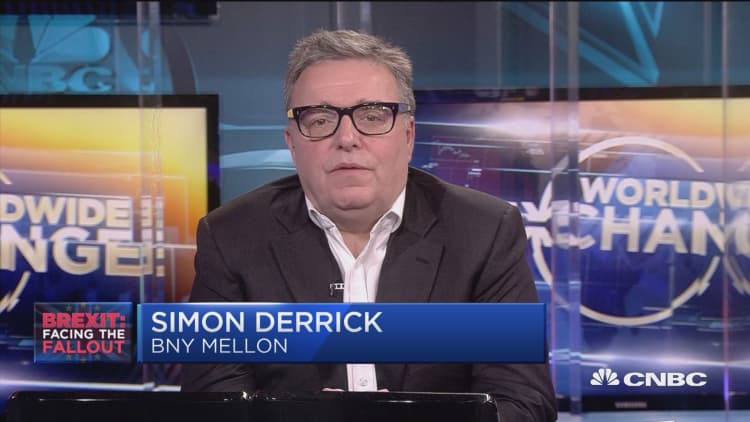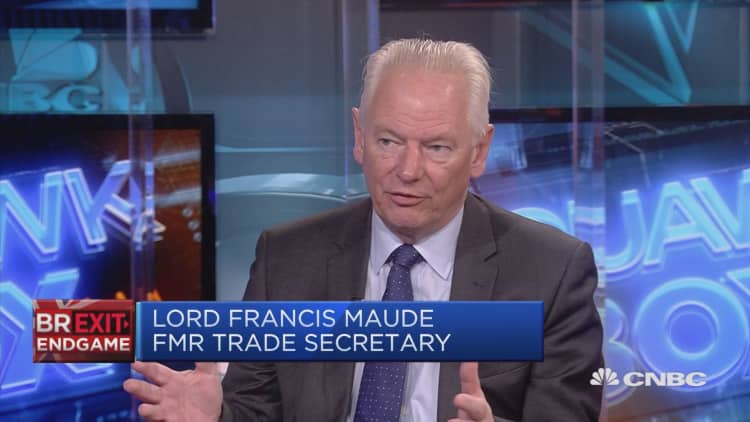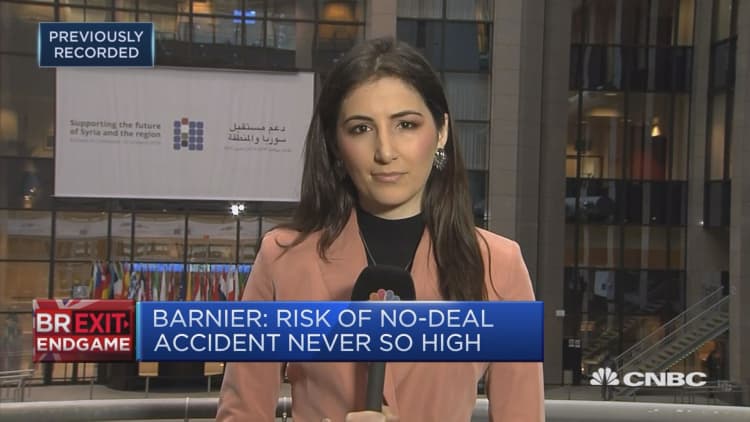The last in a trilogy of Brexit votes for this week is happening Thursday afternoon with British lawmakers voting on whether to seek a delay to the country's EU departure date.
The vote on whether to seek an extension to "Article 50" (of the Lisbon Treaty, which sets out the EU departure process) comes after U.K. Members of Parliament (MPs) rejected Prime Minister Theresa May's Brexit deal and also blocked the prospect of a no-deal departure.
Long or short delay
On Thursday, MPs could decide at 5:00 p.m. London time to approve seeking a delayed departure from the EU, which is still due to take place on March 29. The EU would have to agree to a delay and it has said the U.K. would have to justify requesting one.

The motion being put forward by the government states that if Parliament has approved a Brexit deal by March 20 then the government will seek to agree with the EU a short delay to Brexit ending on June 30.
If Parliament has not approved a deal by March 20, then the U.K. would have to seek a longer delay, the government proposed.
"It is highly likely that the European Council (head of EU nations) at its meeting the following day (Thursday next week) would require a clear purpose for any extension, not least to determine its length, and that any extension beyond 30 June 2019 would require the United Kingdom to hold European Parliament elections in May 2019," the motion to be debated Thursday afternoon states.
The length of any delay is the key question for the U.K. and EU.
On Wednesday evening, May said there were now two choices — agree a deal and try to secure a short delay to Brexit (her preference) or fail to agree anything and face a much longer delay.

Sterling softer
Brexiteers within Parliament would like to keep any delay as short as possible as they fear Brexit will end up being cancelled. The EU, meanwhile, is anxious that continuing uncertainty over Brexit will impact its European Parliament elections being held in May — which the U.K. was not supposed to be a part of.
Opposition MPs have tabled amendments (basically, suggestions for alternative courses of action) to the government's motion on Thursday and these will also be voted upon — but again, these are not legally binding but just show how much support an alternative course of action has among lawmakers.
Amendments to be voted on include delaying Brexit in order to hold a second referendum and, if that motion is not passed, another amendment allowing Parliament to debate Brexit's next steps next week.
Sterling surged on Wednesday, hitting nine-month highs against the dollar, but lost some of those gains on Thursday. By 1:30 p.m. London time the pound was trading at $1.3232.



